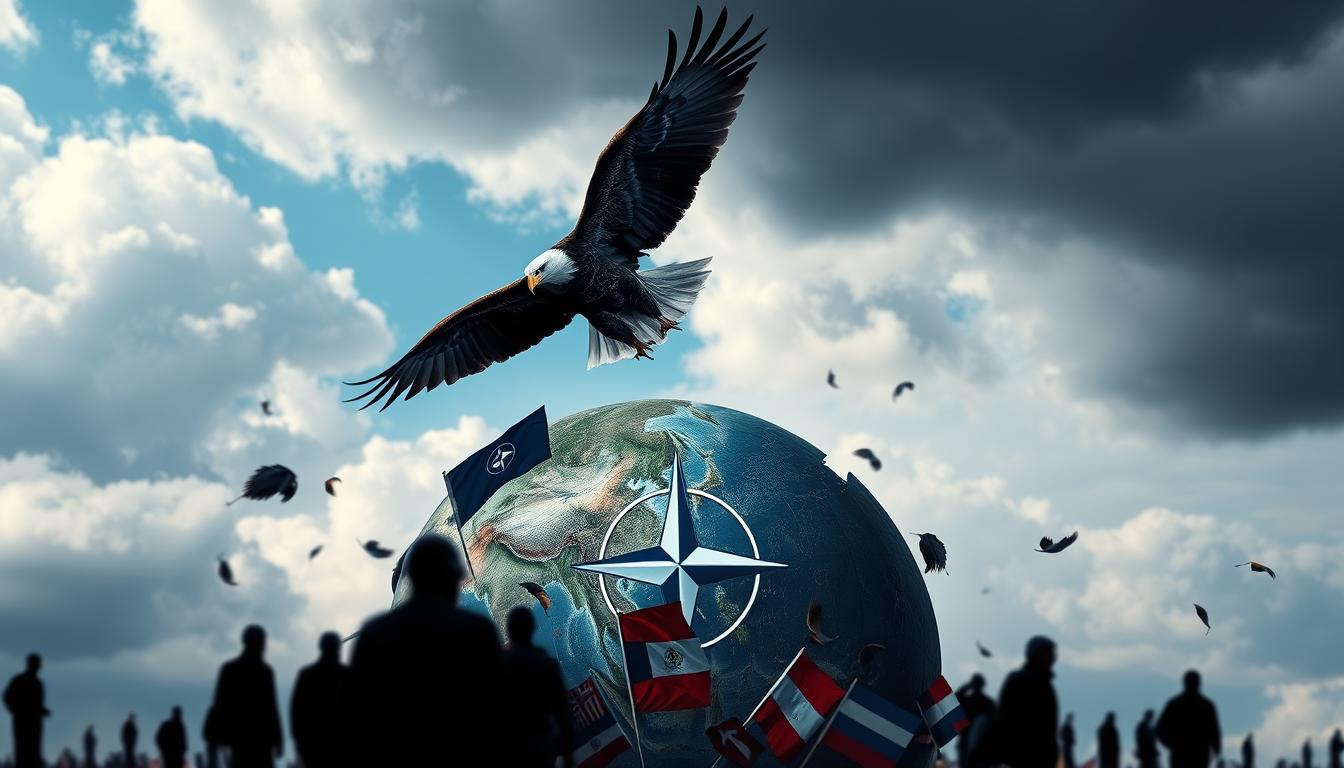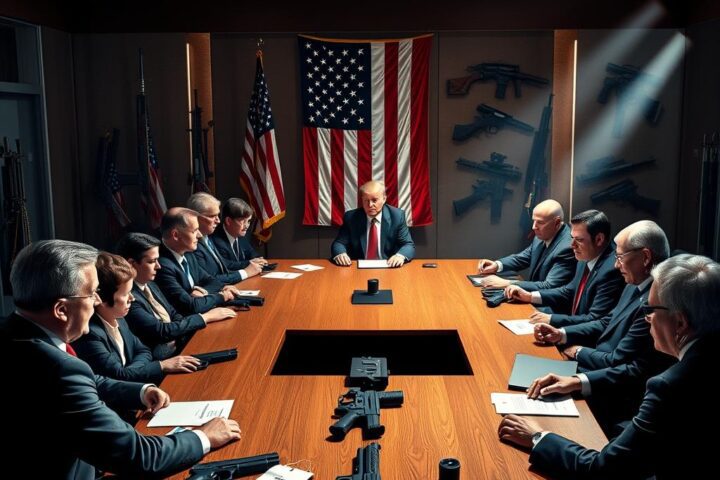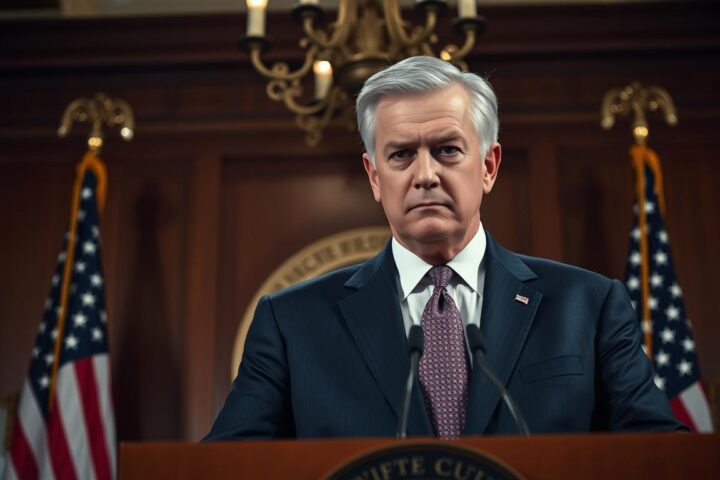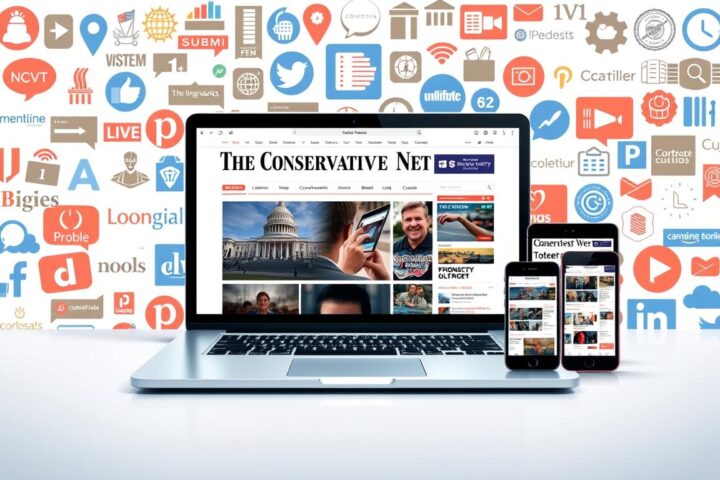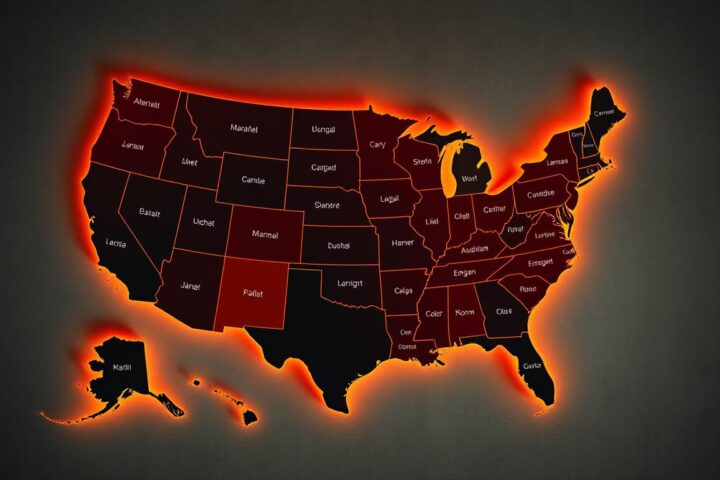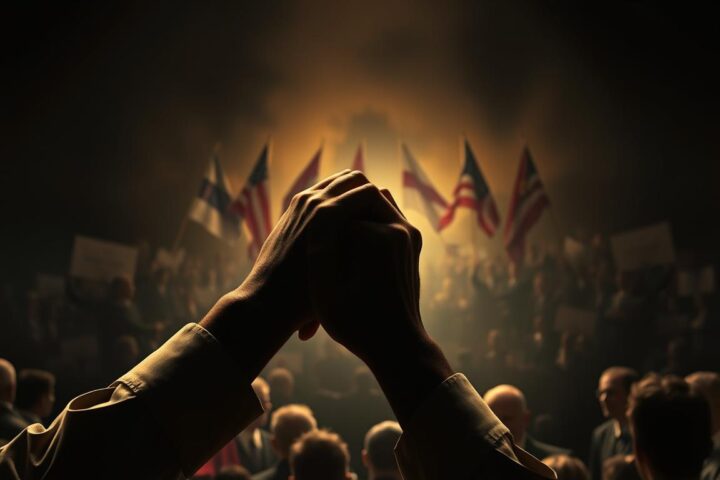Did you know the U.S. pays about 22% of NATO’s budget? This is more than any other country. It shows how much NATO costs the U.S. and limits its power in global politics. As the world changes, it’s time to think if NATO is still good for America.
NATO was created during the Cold War for defense. But now, many doubt its importance. There are more calls to rethink U.S. involvement in NATO. This is because NATO might not help America stay strong and secure in today’s world.
Key Takeaways
- NATO membership costs the U.S. a significant portion of its military budget.
- The geopolitical landscape is changing, prompting a reevaluation of alliances.
- American dominance could be compromised by the obligations of NATO membership.
- Historical context is essential in understanding NATO’s evolving relevance.
- Public policy decisions may be hindered by commitments to the alliance.
The Importance of NATO in Global Politics
NATO has been key to global stability since 1949. It started as a defense alliance against Cold War threats. Now, it tackles many security issues for its members. This shows how important NATO is today.
NATO has shown it’s serious about security cooperation. It has helped in the Balkans and fought terrorism after 9/11. It’s a vital part of keeping peace.
Some numbers show NATO’s importance. It asks members to spend at least 2% of their GDP on defense. But, many countries don’t meet this goal. The U.S. and its allies are working to increase their military spending.
This partnership helps NATO deal with crises quickly. It makes NATO a big player in global politics. It’s crucial for keeping everyone safe.
Understanding NATO’s Role in American Military Strategy
NATO is key in shaping U.S. military strategy. It’s a big part of U.S. defense plans. NATO helps by working together in training and operations, making it better to face global threats.
Defense funding in NATO is a big challenge. Money for NATO can take away from important national needs. It makes us wonder if shared military duties are worth it compared to focusing on American interests.
NATO helps U.S. forces get better through joint exercises and training. This makes U.S. forces work better with allies. But, it also means less money for other important things.
Being strong in NATO has big effects beyond just military issues. It affects long-term U.S. military plans. It’s important for leaders to understand how NATO fits into national security.
Looking at NATO’s role in U.S. military plans helps us understand international security better. For more on military funding and operations, check out this video on NATO’s importance. The relationship between U.S. NATO duties and national military strategy needs constant talk to protect American defense.
Evaluating the Cost of NATO Membership for the US Government
Being part of NATO has big financial effects on the U.S. government’s budget. These costs include keeping troops abroad, funding NATO operations, and helping other countries. It’s important to look closely at how these expenses fit into the budget.
Recently, there have been talks about how these costs affect programs at home. Some key concerns are:
- Support for military bases and troops in places like Syria, where about 900 U.S. soldiers are stationed.
- More operations because of attacks on U.S. forces, with 208 in the Middle East since last October.
- Financial issues from fines on U.S. defense contractors, like Boeing, which got a big penalty of $243.6 million.
It’s vital to weigh the costs against the benefits of alliances. Looking at how much each country spends on defense shows differences. This leads to talks about if these partnerships can last. It also raises questions about how these costs shape U.S. policy and priorities.
For example, the legal battles over Boeing’s money settlements show how military contracts and public trust are linked. There are worries about how diversity policies might affect legal deals, as seen in the Boeing case.
The Rise of American Nationalism and Its Political Implications
American nationalism has changed the political scene a lot. It makes people doubt the need for international groups like NATO. This leads to talks about how it affects U.S. foreign policy.
Populism has grown in elections, pushing for an “America First” stance. This view questions the value of alliances that don’t focus on U.S. interests.
Recent elections show a move towards candidates who support nationalism. For example, graduates from places like Patrick Henry College focus on conservative Christian values. They connect with many voters who don’t like globalization and want to go back to old values.
Supporters say nationalism makes the U.S. stronger and puts home policies first. This mix of populism and nationalism leads to calls for less involvement in foreign affairs. Some even want to cut ties with alliances like NATO.
- The rise of American nationalism has led to:
- Greater skepticism about international agreements.
- A resurgence of populist rhetoric in campaigns.
- Electoral outcomes reflecting a desire for prioritization of U.S. interests.
As politics keeps changing, it’s key to watch how these views shape future policies. Schools like Patrick Henry College help train leaders who believe in these values. For more on how these schools influence politics, visit Christian nationalist college graduates.
The Shift in Global Power Dynamics
The world of international relations is changing fast. Tensions are rising between old powers and new ones, like China and Russia. This change is making old alliances less important and creating new ones.
This shift is making NATO’s role in keeping peace and safety questioned. The U.S. needs to rethink its strategies because of these new threats. It might even decide to leave NATO, which could change how the U.S. makes friends.
Important things are causing this big change:
- New military powers are making old security plans outdated.
- Fast-growing economies are changing how countries act globally, forcing the U.S. to adjust its policies.
- International relations are getting more complex, making diplomacy key in solving conflicts.
This change brings uncertainty. But, it will shape how the U.S. deals with the world and its place in it.
The Impact of NATO Flexibility on American Foreign Policy
NATO’s flexibility is key in shaping U.S. foreign policy. It lets the U.S. handle complex global situations well. NATO helps in strategic defense and crisis management, making U.S. diplomacy stronger.
NATO has changed its security approach to meet new threats. This ability to adapt helps the U.S. work with allies on common challenges. NATO’s flexibility boosts U.S. security and strengthens alliances.
As NATO’s role evolves, U.S. leaders must think about its impact on diplomacy. NATO’s flexibility and U.S. interests create both chances and challenges. Understanding this dynamic is crucial for future strategies, especially in areas where new powers are rising.
NATO’s ongoing change is vital for global peace and security. U.S. officials and NATO allies must use NATO’s flexibility to handle crises well. This will affect diplomatic relations and global governance for the long term.
For more on global sustainability, like sustainable aviation fuel projects, see this project aimed at reducing emissions.
Public Opinion on NATO: Survey Insights and Political Parties
Public opinion on NATO has changed a lot due to global events. Recent NATO surveys show big changes in how Americans feel about it. These changes are especially seen in how different political groups view NATO.
These surveys give us important insights into how people feel about NATO:
- Only 42% of Canadians trust their government to work well with the U.S., down from 60% in 2017.
- Liberal voters are more confident, with 73% believing their government can protect national interests.
- Conservative party members are much less confident, with 75% doubting their government’s abilities.
- NDP supporters are almost evenly split, with 53% feeling confident and 47% not.
How people see international relationships affects their views on NATO. The debate over whether Canada should give in to U.S. demands shows deep concerns about national sovereignty and NATO’s role. Most, 49%, say they don’t want to be “bullied” by the U.S. and prefer negotiations over giving in.
Across all political views, there’s a strong distrust of NATO’s role. This distrust is woven into American political beliefs. As NATO’s future is discussed, voter opinions will likely influence the policies of political parties dealing with this issue.
Political Ideology: Isolationism vs. Globalism
The debate between isolationism and globalism greatly affects U.S. foreign policy. Isolationism focuses on national interests and limited international involvement. Globalism, on the other hand, supports active participation in global affairs. Knowing these ideologies helps us understand American diplomatic strategies.
U.S. foreign policy has swung between these two views over time. Leaders like Donald Trump have shaped this debate. His “America First” policy is seen by some as aggressive unilateralism, not traditional isolationism. Many voters, fearing globalization’s effects, lean towards isolationism.
- Isolationism prioritizes domestic issues over foreign involvement.
- Globalism advocates for international cooperation to tackle global issues.
- U.S. foreign policies have changed based on major conflicts and other factors.
New leaders, like Vice President-elect JD Vance, are pushing for a reevaluation of past military actions. This is a call for a balanced approach in U.S. foreign policy. It seeks to align national interests with global cooperation.
Isolationism and globalism also influence opinions on NATO. Supporters see alliances as crucial for order and democracy. Isolationists, however, doubt their effectiveness. The debate centers on balancing economic dominance with citizen security through informed policies.
Understanding these ideologies is key when evaluating political candidates. Recent surveys show that knowing economic principles helps voters discuss policy directions. The global economy’s challenges underscore the need for a deep grasp of both political and economic realities.
For more on economic policies and their impact on voting, read this article on economic strategies in the recent presidential election here.
Future Public Policy Directions Without NATO
Thinking about a world without NATO leads to talks about boosting national power and freedom. Without NATO, the U.S. might change how it defends itself and deals with other countries. This could mean making defense and foreign policies that fit the U.S. better.

- Legislative Changes: New laws might focus more on what’s good for the U.S. rather than what’s good for the world.
- Customized Strategic Partnerships: The U.S. might make alliances that benefit both sides, not just follow a group defense plan.
- Reassessing Military Engagement: The U.S. might think twice about joining fights, like in Ukraine, and change its military plans.
- Border Security Policies: The U.S. might put more effort into keeping its borders safe, like fighting drug cartels at the border.
But, leaving NATO could also bring challenges. Keeping the world safe without NATO might be hard. The U.S. would need to find a way to keep its people safe while being more independent in foreign policy.
Conclusion
This NATO analysis has shown key points about the future of American leadership in global politics. As the world gets more complex, the U.S. might rethink its role in NATO. This could better match its strategic goals.
Looking closely at NATO’s role, we see that focusing on national security could make America’s foreign policy stronger. This could lead to a more independent U.S. in global affairs.
The debate on NATO reveals that the alliance might not always be in the U.S.’s best interest. A smarter approach to international relations is needed. This should involve building alliances that truly reflect America’s goals and values.
By questioning NATO’s role, the U.S. might form more effective alliances in the future. As the world changes, prioritizing America’s strategic interests is key. This could shape America’s role on the world stage.
For those wanting to stay prepared and defend their rights, learning about self-governance is important. Resources like militia definitions can help understand the bigger picture.
